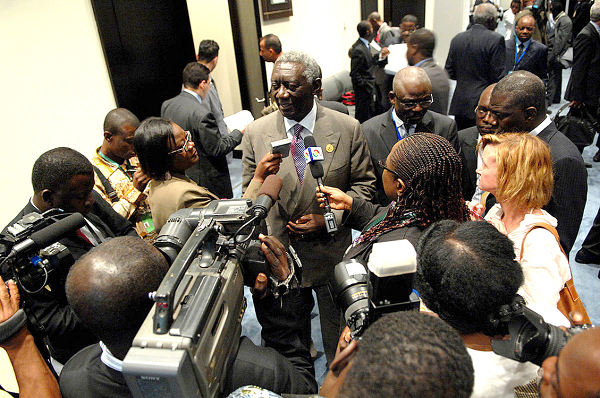
Why did I become a journalist?
The media job seems very attractive, especially, looking at it from the outside.
Working at a television station seems so interesting; particularly, considering how well-dressed men and women with beautiful smiles look when they appear on TV. The journalist, on a daily basis, educates, informs, entertains and updates people on issues that affect them one way or the other. There have, for centuries, been the print, television and radio which are classified as the traditional forms of media.
But, currently, there is the upsurge of social media: Facebook, WhatsApp, and Twitter among others. And, these new mass media help, even more, to easily disseminate information in a timely manner.
Poor working conditions
In Ghana, most people who are into journalism claim they do it for the love of it. Even though remuneration is relatively better now, majority of journalists still receive a pittance as salaries. In some media institutions in this country, reporters take home as little as GH¢400.00, which is approximately US$80.00, or even less, as monthly salary.
The average media person here works his or her entire life but is unable to accrue a pension fund to fall back on. They have no home and no form of mobility, when they retire. This is in spite of the fact that the industry continues to grow, receiving hundreds of new entrants every year. Indeed, a recent survey conducted on final-year high school students showed that as many as half of them wanted to be broadcasters or do some form of journalism. No wonder, the dozens of public and private media schools here are bursting, as their enrolment keep swelling.
Inadequate supporting legislation
Even though chapter 12 of the 1992 Constitution of Ghana guarantees Freedom of the Press and Independence of the Media, journalists are only privy to some, but not all, aspects of information. They, thus, have to rely chiefly on tip-offs to dig the rot in society. This is due to the absence of any law giving practitioners the right to demand and get information, especially, from government appointees. This major handicap, notwithstanding, it must be clarified that Ghana encourages the practice of democracy and the rule of law; never mind that the passing of the Right to Information Bill has been delayed by Parliament and the Presidency for more than a decade. One worrying phenomenon, meanwhile, is that some journalists who persevere in exposing the corruption in society get life threatening messages from governments, regime party supporters or private individuals. Poor compensation and job frustration make journalism here daunting indeed.
Love for the job
"I love Journalism," is one major reason given by some reporters I quizzed on why they were in the profession. One lady actually said. "I'm passionate about the job." From another came the response, "I want to be the voice of the voiceless." These young journalists had their reasons for being in the media, and they have the intent to remain in love with what they do. Many other media practitioners have the same intent or wish.
Journalists in exodus
However, there is a change on the horizon. And, in the near future, only a handful of professionals may end up retiring as journalists. In Ghana, currently, scores of diploma and degree-holding journalists go back to school to divert into the study of Public Relations, Marketing Communications, Development Communications, Advertising or other forms of communications-related programmes. This is because in as much as they love the profession, the meagre salaries and unattractive retirement packages discourage them from keeping their love affair with journalism. Moreover, many employers prefer hiring persons with journalism background – for their eloquence and boldness – in the Human Resource , Public Relations , Public Affairs and some other departments. Some media practitioners even go to the extent of making a complete detour to other fields as the health, banking or agriculture sectors.
Waning love?
Does it mean the love shown by the people in the Fourth Estate of the Realm – as the media are popularly called – is waning? Will media and media organisations have to reform to retain the passion that the youth and adults have for the job? If conditions of service remain largely unchanged, will Ghana’s newspaper, radio, TV stations turn a ‘ghost town’ deserted by their darling practitioners? Only time will tell!
